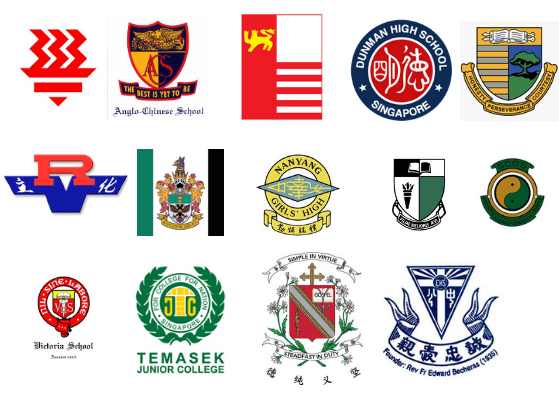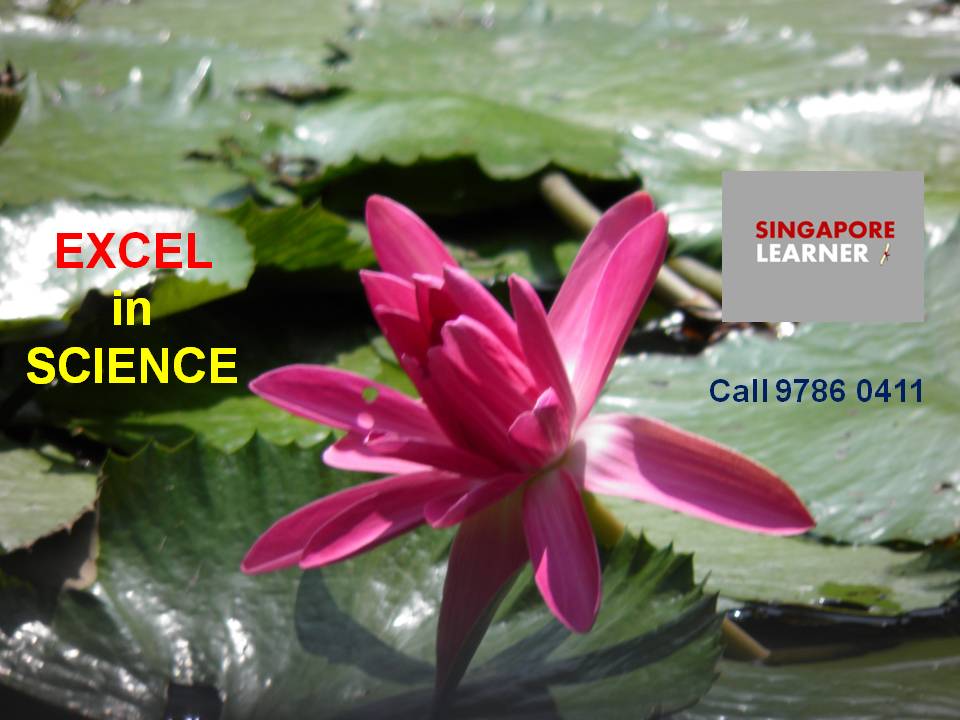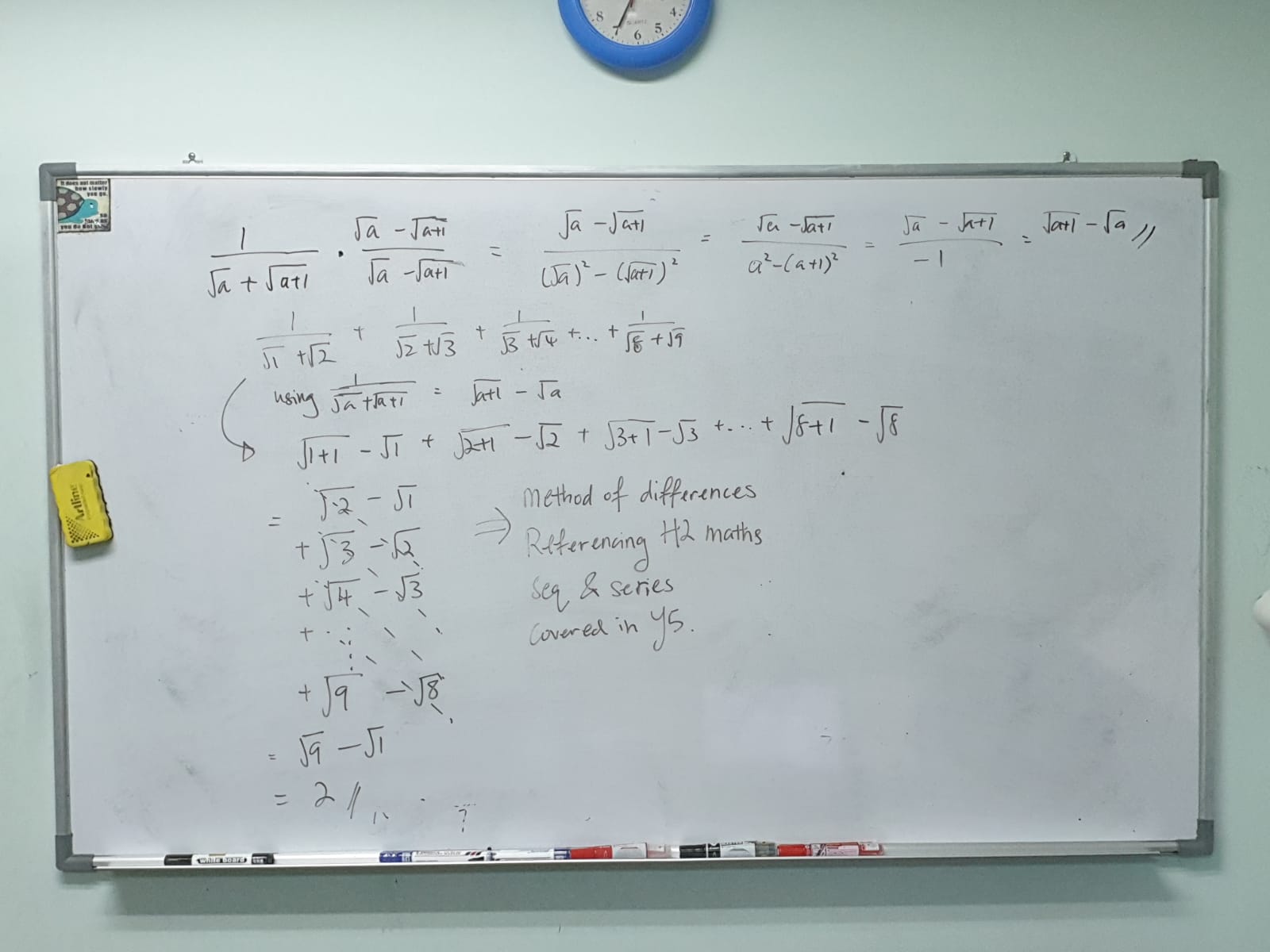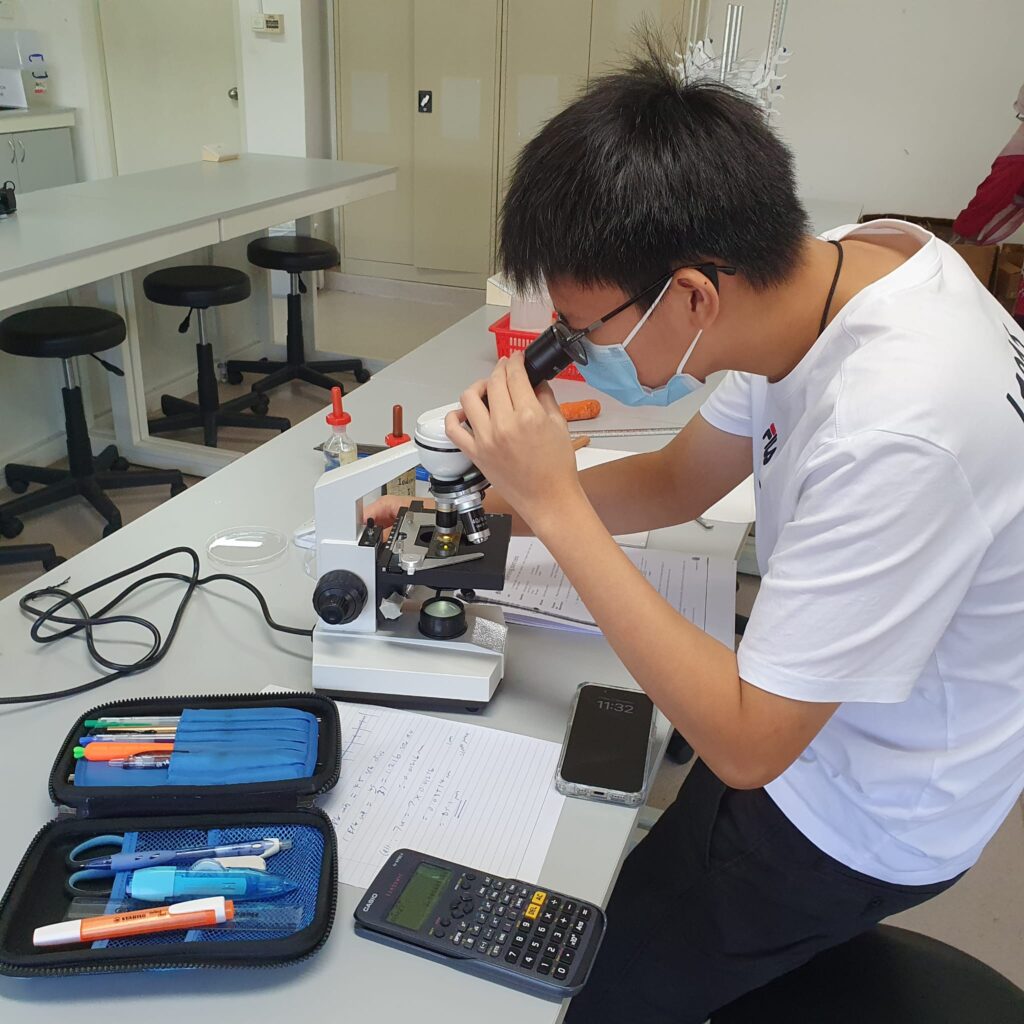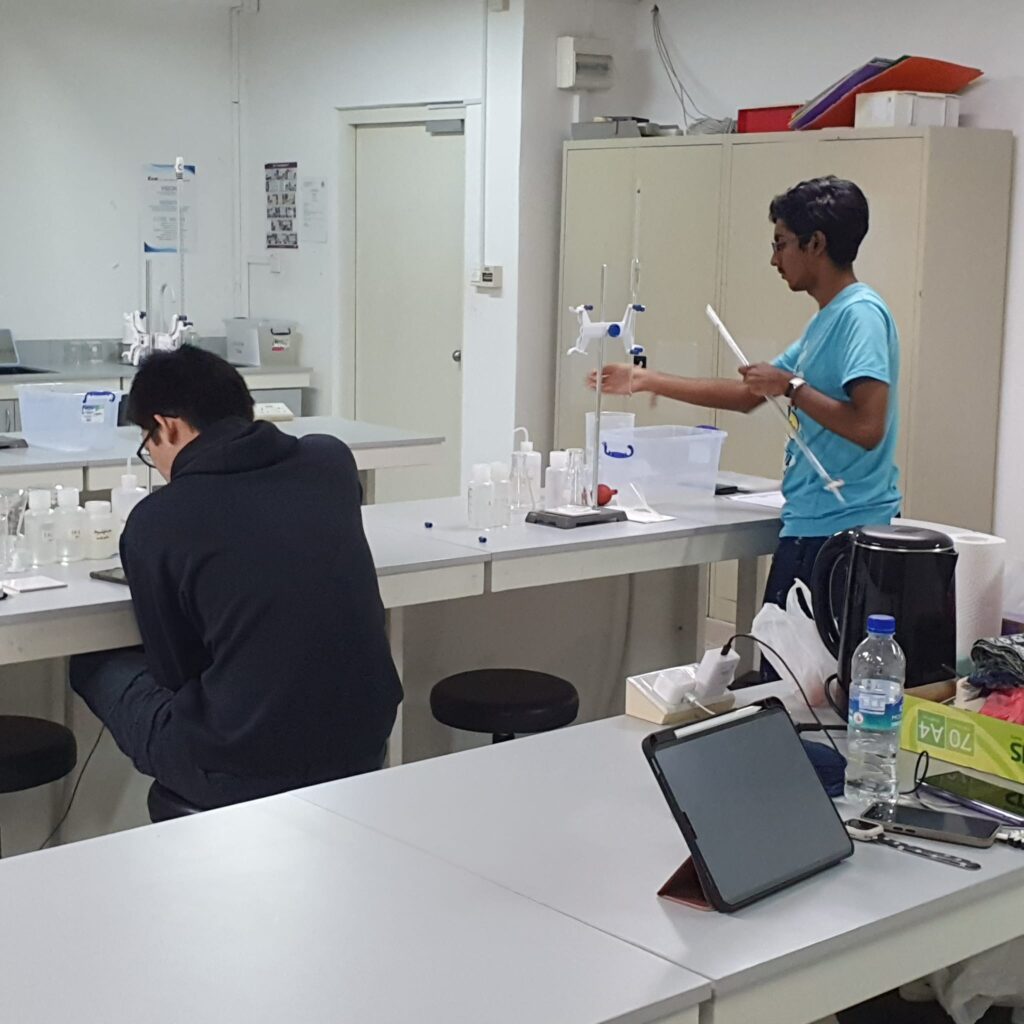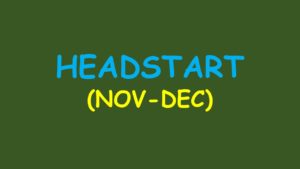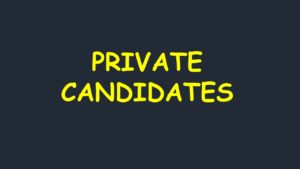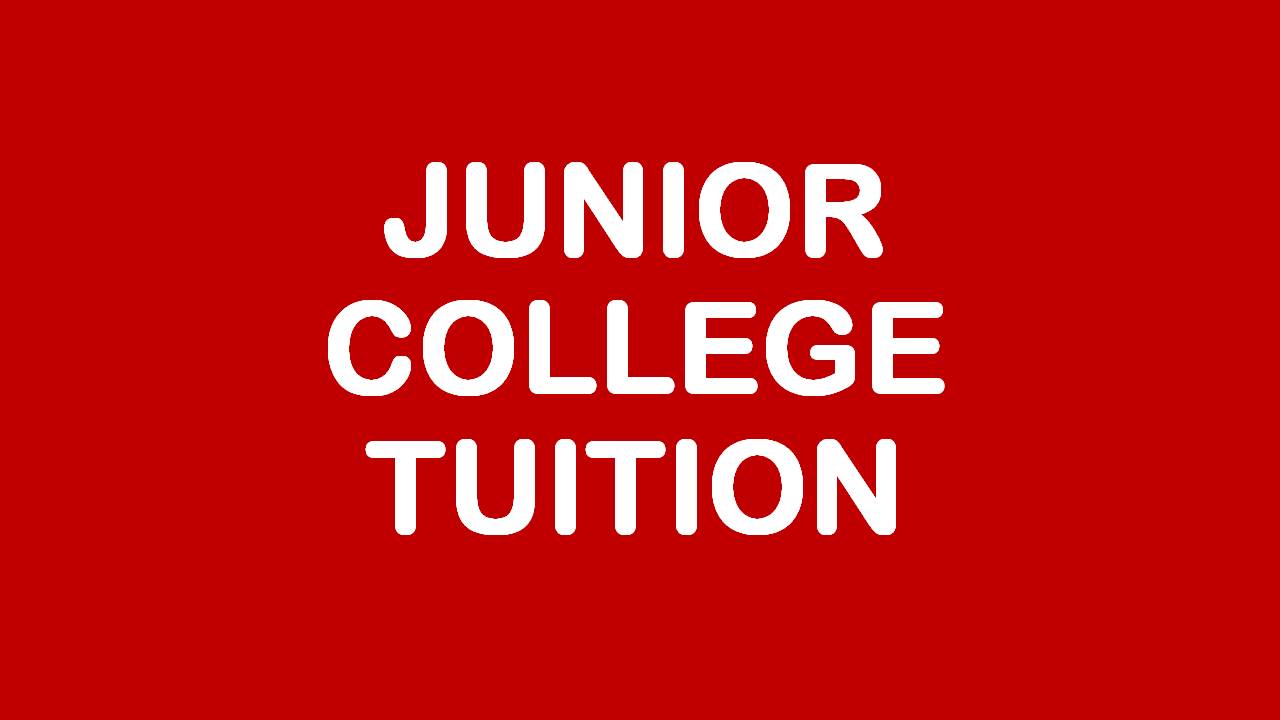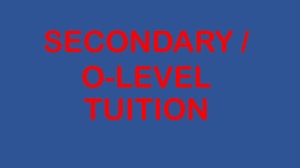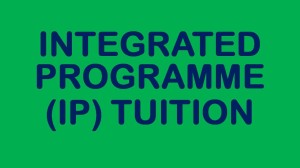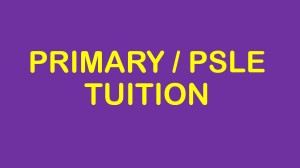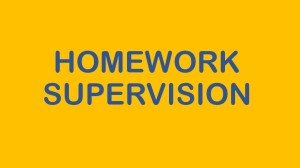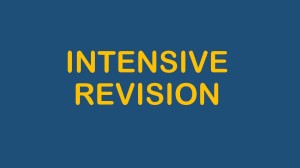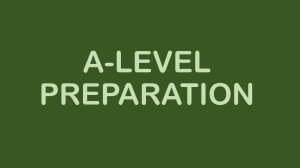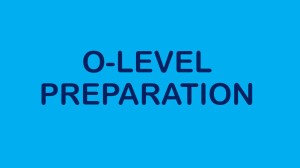Direct School Admission (DSA) students in Integrated Programme schools:
Parents of children who have been admitted into IP schools have expressed their concern to me on their anxieties, mainly whether their child will be able to cope with the rigorous educational standards of the top schools even though many of them do not meet the cutoff scores of their individual schools. I can assure you that with enough preparation, your child will be ready to meet the expectations of their IP schools and do better than their peers. I will cover this issue in the points below.
- Your child’s PSLE grade is low because of their success in the DSA interview.
Once a 12yo child is informed that he/she has been admitted into a top school before taking the PSLE, their typical response will be a sigh of relief and a more relaxed attitude towards one of the most stressful exams in Singapore. Most of my DSA students, and including my friends who have been successful in DSA applications into IP schools, have told me that the days leading up to PSLE have been stress-free, and they are able to focus more on their CCAs instead of just pure academics. This is shown in their lower PSLE scores as compared to their peers in their respective IP schools, who have been spending a lot of time hitting the ten year series as their spots in the IP schools are not secured. I assure you that if your child studied more during those days, he/she would see a significant jump in their PSLE scores as well. They are by no means lacking in terms of intelligence compared to their peers.
- There are quite a few skills or chapters covered in the PSLE that have insignificant impact on secondary school life
In the chapters of Science, only human/plant systems, forces, energy, man and his environment are tested in Secondary school. The bulk of what they learn in Primary 6, which is animal based such as environmental impact, web of life, adaptation, is completely untested at the Secondary level. For Math, the skills used in the last 20 marks of the exam, which essentially act as a gatekeeper to A* grade, are used to tackle open ended problem sums with abstract concepts. These skills may not be of great value in Secondary level Maths which focuses more on laws, procedure and presentation. In English, compositions test students on creative narrative writing, whereas Secondary level English tests them on argumentative essays, which place more importance on current affairs, and debating of key points rather than narrative and creative writing. In Secondary school, discipline and conscientiousness is more important, as compared to primary school which values open ended problem solving through problem sums and seemingly out of textbook structured question answers.
- The schools provide extra assistance to their DSA students
It should come as no surprise that the DSA students are valued members of the school as they are their representatives in CCAs. If students are taken out of class due to CCA commitments, there will be avenues for the teachers to cover those lost lessons with them again. CCAs are also expected to stand down during exam periods, especially during finals where the weightage of the exams are the highest.
That being said, DSA students should never rest on their laurels. IP is a competitive system that has sieved out most of the academically gifted children in Singapore. To do well in such an environment requires intense efforts from both parents as well as students to ensure that they do not stray from the path of academic excellence.
First time having a child going to an Integrated Programme school
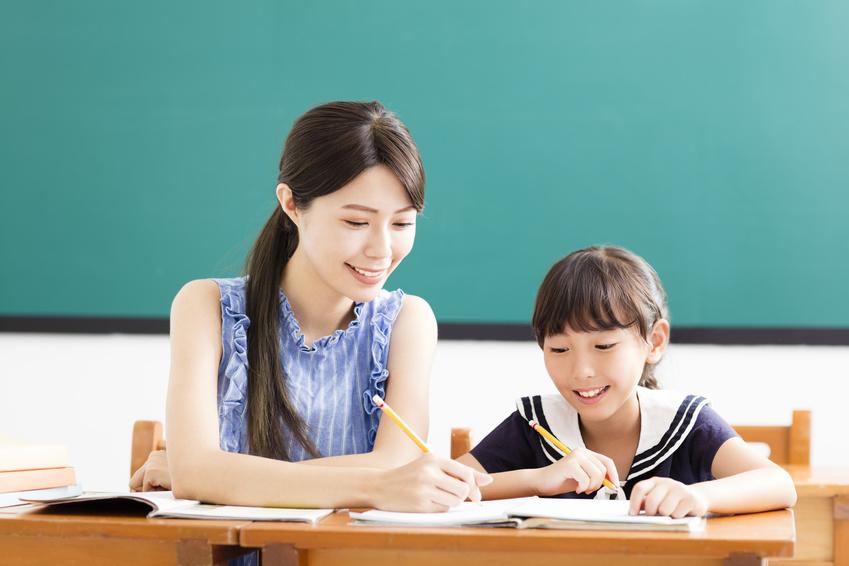
This guide is released to assist parents who have no prior experience in Integrated Programme matters, but have a child enrolling into an Integrated Programme stream.
- The difficulty of the syllabus is enhanced. Using the traditional O-level textbooks or workbooks may not be sufficient to help your child in tackling the IP syllabus. The formula sheets, or timing of the papers may not be the same as the O-level. It is not uncommon for IP schools at the secondary level to teach beyond the regular syllabus, by including either JC topics/concepts or questions that may be very fringe/out of syllabus. If you are looking for good books to use, I suggest using those O-level textbooks with express/special stream in their titles. Those books are usually better for IP students as they involve deeper concepts and tougher questions. IP exam papers are very difficult to find online or in most bookstores, and there is no standardized textbook for reference due to the fast changing nature of IP syllabus.
Examples of tough IP questions which use concepts that are beyond their own level:
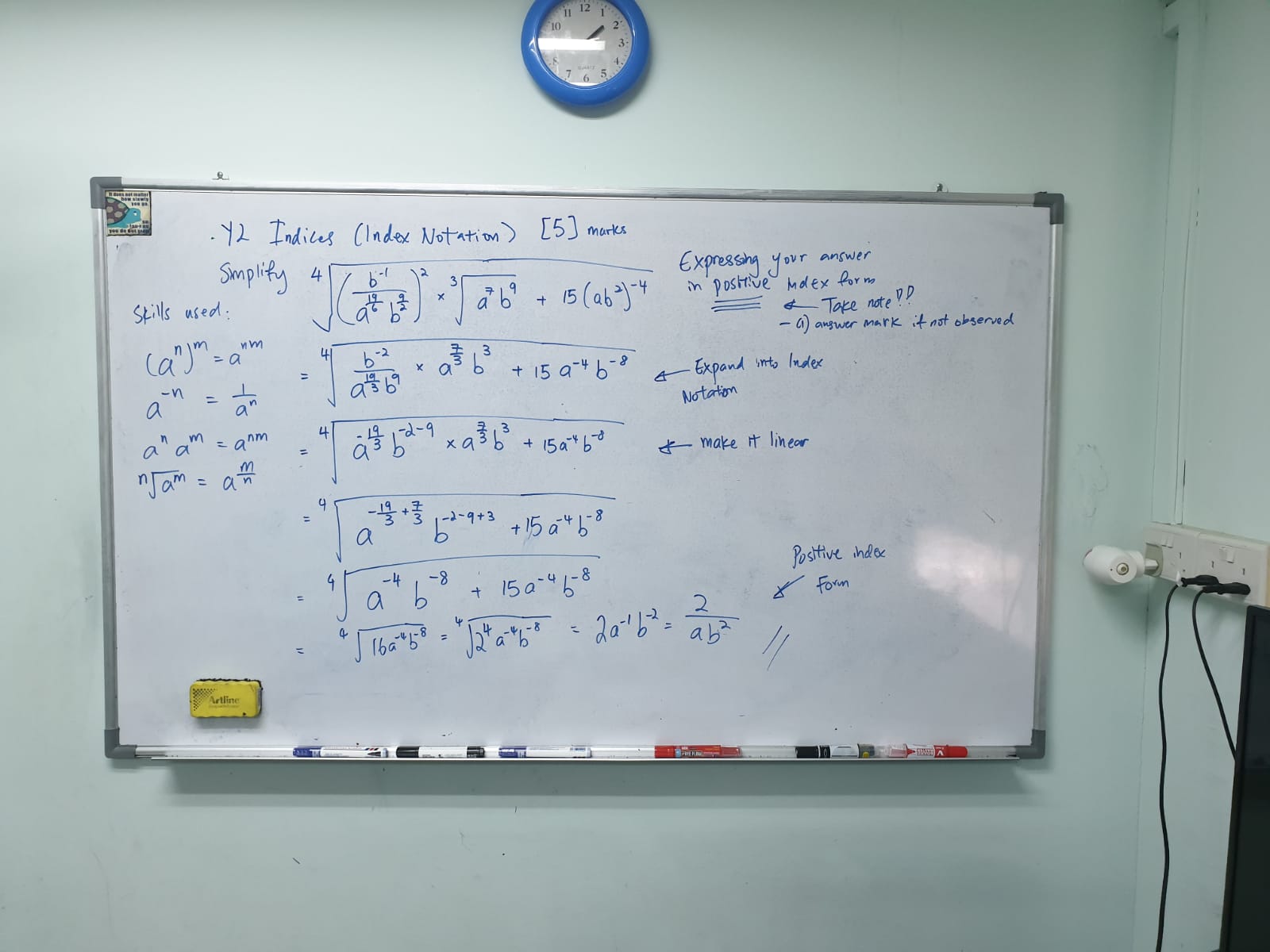
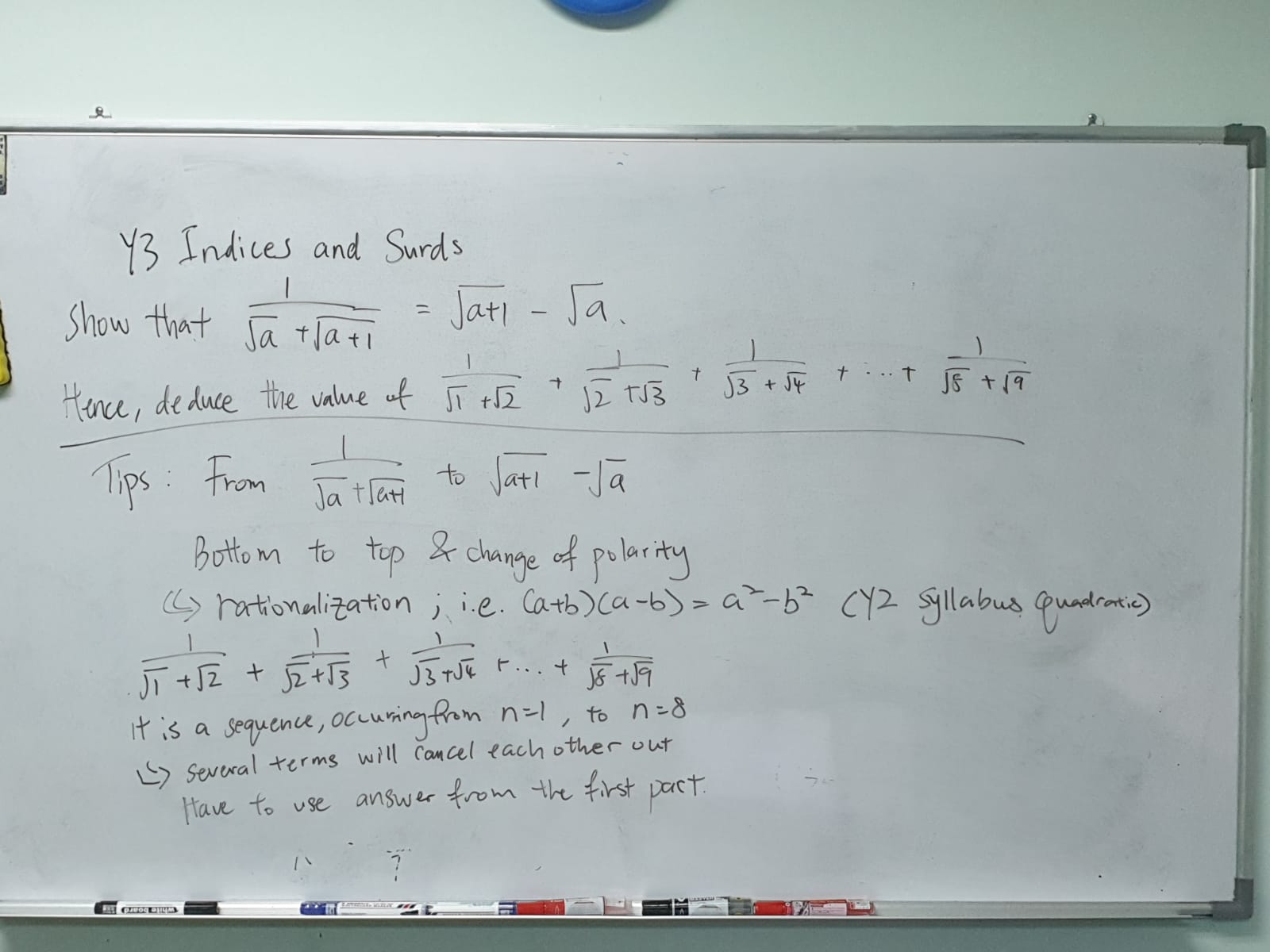
- CCA is demanding. Your child will need to balance between studying hard and training for CCA rigorously. During competition periods, your child might miss some lessons and that will affect their grades. A consistent effort throughout the term is necessary for them not to fall behind, together with eating and sleeping well. Some schools even require students to take up more than one CCA in order to demonstrate their potential for leadership. Ultimately, this assists them in making their report book presentable for scholarships.
- IP schools have graded project work. This is to prepare them for Y5 and Y6 as they would be required to take H1 project work. If your child is quiet, they have to learn to speak up, in order to score for presentation. A lot of time has to be dedicated to research, as well as preparing for presentation and a written report. Ultimately, this helps them in their H1 project work as they have 4 years of project work experience prior to JC. The research skills gained from project work will help them eventually in university as well.
- The workload for homework is heavy. On top of CCA, and project work, there is still a lot of homework to clear. Besides the traditional worksheets issued for homework, there are still homework like lab reports, book reports or essays. These are all part of their continual assessment, and doing well in these modes of assessment requires your child to be very competent in the basics of all their subjects(e.g. Science lab reports can involve deep Mathematics concepts) Questions can seem very open ended as they are testing your child for their critical thinking skills.
This post is compiled by the IP tutoring team at Singapore Learner, based on our personal experience studying in an IP school or teaching in an IP school.
Our IP tuition schedule and other IP tips can be found here
For enquires on IP tuition, please call our office number at call 65694897.
To consult about IP matters, you can reach Admin Staff at 88765498 (Whatapps)
Location: Blk 644, Bukit Batok Central, #01-68. S(650644).
Using the CER(Claim, Evidence, Reasoning) method in Primary 3 and 4 Science
As parents, many of you would have seen your child bring home science worksheets which require them to answer using the CER method, and are unsure of how to guide them to solve those questions. So what is the CER method? The CER method stands for Claim, Evidence and Reasoning. It is developed to encourage students to answer a scientific problem using data to support their answers. This method is used to train students to develop the necessary skillset to tackle the PSLE answering format.
C – Claim. When you make a claim, it is supposed to be a statement which is unsubstantiated. This statement has to answer the original question. For example, in a question with woodlice in a box, a student can make a claim which is “woodlice prefer to live in dark areas”
E – Evidence. Provide evidence to your claim. This evidence must always be based on whatever diagram, model, table or graph that is presented in the question. Evidence is typically numerical in nature, i.e. the student must quote the significant numbers to substantiate their claims. For example, in the same woodlice question, a student can say “after 2h, there are 10 woodlice in the sheltered area, and 0 woodlice in the lighted area”. Note that in the answer, the student needs to quote and compare these statistics presented.
R – Reasoning. Reasoning is the use of scientific concepts to explain your claim and evidence. These scientific concepts are usually limited by the scope of your issued textbook, i.e. your answer should include keywords or key concepts quoted in that specific topic in the textbook. An example of a good reasoning answer would be “some animals are nocturnal in nature. Because more woodlice are in the sheltered area, this means that they are nocturnal and prefer the dark or will be more active in the dark”
Some parents might ask, is this exact answering scheme required of my child in PSLE? Of course not, the questions in PSLE science do not segregate the questions into its individual CER components and expect an answer as such. However, you must bear in mind that this mode of answering is effective for training your child to become a learner who can give proper scientific answers, which is what the PSLE is looking for. I hope you find this information useful for your child’s academic growth.
Bridging the gap from AL2-3 to AL1 in P6 Science
Many parents of academically gifted children are often perplexed by their inability to secure an A* for Science, especially if their child is already doing exceedingly well in other subjects such as Mathematics, which also requires higher order thinking. Based on my experience from training such students, as well as my personal experience, I can offer some insight into this matter.
1) Primary level Science, unlike Mathematics, follow a strict marking scheme with a range of keywords. Mathematics on the other hand, accept a wide array of solving techniques, even if they are of a more advanced nature. (i.e. using simultaneous equations to solve problem sums is a valid technique, even if it involves competencies which are taught in Lower Secondary maths) A strong Maths student at P6 may find themselves knowledgable on Science, but unable to be a high achiever because their phrasing is not within the acceptable parameters of the P6 Examination. A very knowledgable student in Science can still fail to get A* if they do not use the correct terminology. Drilling of keywords is necessary, but can be memory intensive and inefficient. It is important to teach them that there are a set of keywords instead of just one acceptable answer, so their thinking is nimble, and able to adapt to different questions. It is also less taxing on their memory.
2) Carelessness in MCQ. Even after the changes to MCQ section, moving from 30 questions to 28 questions, the MCQ still forms the bulk of the grades in the PSLE. Securing near full marks in MCQ is vital to securing A*. As a parent, you must understand that almost every year without fail, there will be an extremely challenging or creative section B question which most students cannot handle. In order to hedge against the scenario that your child might be unable to get the question right, you must have near perfect MCQ grades. That marginal difference in MCQ means that carelessness cannot be tolerated, and MCQ techniques or skills have to be properly taught to them, and it has to be taught early. Last minute preparation will not serve you well.
3) Overanswering in section B may cost you more than you think. Parents, students, or even some teachers, may have the mentality that overanswering is the way to go, and better be safe than sorry. This tactic will not serve you well if you are aiming for A*. Overwriting often leads to less time allocated to reading long questions and understanding complex diagrams. This is costly as the students might find themselves misinterpreting the question and going out of point. It is much more efficient to learn how to interpret certain prompts(state, explain, describe) in the questions and answer accordingly. (i.e. not all 2 marks questions must have lengthy answer, and not all 1 mark questions are that straightforward. The specific wording used in the question will determine the depth of your answer)
4) Last but not least, a healthy interest in the pursuit of Science is important. A driven and motivated child will be well read, and in turn, that makes the child very resilient to challenging questions which involve scenarios that test heavily on external knowledge. It is not surprising that many of my students who eventually made it into specialist science schools (SST, NUS High) have a deep interest in the sciences, and are very well read or engaged(perhaps even more knowledgable than myself in certain aspects, which is a very impressive feat). Providing them with an environment which encourages the pursuit of science beyond grades alone, will actually improve their grades in the long run.
Tough IP Maths question: Indices and Surds
This is an example of how a typical IP school paper can supercharge a basic topic like Indices and Surds in Y3. The technique used in the second part of this question references a H2 topic called sequences and series, using method of differences. Such difficult questions can still fall under the category of Y3 questions, and as such will be tested in Y3 exams.
Below are the question, the tips, and our answers.
If you are interested in IP Maths tuition, contact Admin Staff at 88765498. Stay tuned for more updates on tough IP style Maths questions.
Our IP page and schedule:
Integrated Programme subject combination and promotion criteria
Q: Is triple Science good?
A: Triple Science gives you options, as you are still young and have time to figure out which discipline of science they are more interested in. Triple Science is a premium in certain IP schools and will only accept students of a high GPA. Many triple science students are in the course because they enjoy the pursuit of a challenging, all rounded science syllabus. If you know what you want, it’s fine to just take two sciences as well. There are no “bad choices”, subject combination should be selected based on talent and passion. Remember that triple science is not a must have, it is an avenue for the student to take on an additional challenge in their academic life.
Q: What is the safest combination?
A: Physics, Chemistry, Mathematics and any humanities of your own choosing at Y3. PCME(physics, chemistry, mathematics and econs) at Y5. This combination caters to almost all jobs that IP students are traditionally interested in pursuing in Singapore (medicine, law, finance, consulting, accountancy, engineering, research etc)
Q: What if I am forced to take 3H2 at Y5, will that affect me badly?
A: Many 3H2 students I know from IP schools eventually go on to do very well post graduation, don’t let it affect your confidence. Study properly for your promos, prelims and A-level and do yourself and the school proud.
Q: Will I be retained?
A: Schools enforce a certain GPA for promotion criteria for Y1-Y4, 3.0 is usually a good gauge. However, 2.5 – 2.9 usually qualifies the student for conditional promotion. Anything else would be a case by case basis, but safe to say that if you fall short of 2.0GPA, chances are slim. At Y5 you typically need a few H2 passes. Your conduct and recommendation from teachers will also affect promotion criteria, so please be cordial and respectful to your teachers who work so hard to educate you. In the off chance that you are retained, take it as an opportunity to prove yourself again.
Q: Can I take H1 instead of H2 Math at Y5 and Y6 and still qualify for good university courses?
A: H2 MATH is NOT a pre-requisite for MOST courses in NUS and NTU, our highly-ranked world-class universities. This makes perfect sense. Why? You see, two large and difficult topics in H2 Math are Vectors and Complex Numbers. Non-engineers don’t need to know these topics, and many other topics in H2 Math.
Believe it or not, WITHOUT H2 MATH, you can still enrol in the following courses in NUS and NTU:
ACCOUNTANCY, BUSINESS ADMIN, BUSINESS, ARTS & SOCIAL SCIENCES, SCIENCE, COMPUTING, DENTISTRY, MEDICINE, NURSING, PHARMACY, LAW, ARCHITECTURE, PROJECT & FACILITIES MANAGEMENT, REAL ESTATE, INDUSTRIAL DESIGN, ENVIRONMENTAL STUDIES, MARITIME STUDIES, BIOLOGICAL SCIENCES, SPORTS SCIENCE & MANAGEMENT.
This post is compiled by the IP tutoring team at Singapore Learner, based on our personal experience studying in an IP school or teaching in an IP school.
For IP tuition,do contact Admin Staff at 88765498 (Whatapps).
IP INDIVIDUAL TUITION (1-1) (click here)
What to do if you are failing in Integrated Programme?
Throughout the years, be it from my personal experience in the Integrated Programme system, or from the many IP students under my wing and those who come for free consultations, I have encountered all the different types of IP students. But one problem still bugs me, and that problem is this:
If you are a student who is failing in the IP system, what should you do? Besides investing heavily in tuition, here are some steps you can take in order to troubleshoot your problems.
- Am I working hard enough? That is the most basic question you have to ask yourself. The IP system is meant to be more challenging. Putting in little effort in your studies is just shortchanging yourself. As an IP student, you need to develop the mentality of working harder and being more proactive in your studies. So for those of you who have been slacking off, work harder and don’t give up! You are in the IP system for a reason, with enough work you will catch up and pull through. Practice some delayed gratification, put aside your playthings and put in the work. You will be surprised at what you can do once you put in more effort.
- I worked hard but failed, and now I feel really bad, what should I do? First of all, working hard alone doesn’t guarantee success, especially if you have been going in the wrong direction. Seek help from your school teachers first! The IP teachers I know are very caring, and they do their best to help you if you were to meet them halfway. Schedule a consultation with your teachers in the library to clarify all your doubts. It is likely that you have a deep conceptual error in the subject that went unaddressed, or you cannot understand the objectives of the exam questions. Your teachers will be able to help you with those problems as they are the experts. With their guidance, you should be able to do well. Never be shy in asking questions, especially when you are struggling. Many students before you have struggled as well, but with the help of their teachers, they have done very well for themselves eventually. Don’t give up!
- I have worked hard, sought help from my teachers, and it doesn’t seem to be working, what do I do now? Usually, this problem occurs when a student has taken the wrong subject combination. Students can take a combination because they have more friends in the same class, only to realize they do not have the aptitude for the subject or have no interest in the subject. If that happens, seek advice from your teacher in order to change your subject combination to something that suits you more. It is a drastic change, but it is necessary if you have exhausted all means and do not see a way out. If you have taken too many subjects, you might want to consider dropping one as you cannot handle the workload. Additionally, if the level as a whole is not doing well in certain subjects due to a sudden increase difficulty, there will be steps taken in order to moderate the scores. As long as you show good effort and attitude, you will eventually pass.
- I don’t see the point of all of this system, and I had enough. What else is there to do? At this point as a student, you might feel helpless because you have encountered certain emotional problems, and are struggling in a competitive system. Please seek help from your school counselor and address your emotional issues. It is equally important to take care of your mental well being besides your studies. Having a healthy mindset will put you back on the right path to success.
Every year, there will be IP students who are failing, have failed/retained, or have stopped attending school altogether. This is a matter that is close to my heart, as I have had good friends who struggled through such tough times. But I have also seen them rise above the occasion and bounce back. If you require a consultation about your options, or maybe even just a listening ear, please Whatapps Admin Staff to schedule a free consultation at 88765498. Do not despair, keep your chin up, and I wish you all the best in your studies.
IP Y1-Y4 SCIENCE PRACTICALS
What happens at the end of Y4 IP?
After your final exam in Y4 IP, you will be streamed into different classes for Y5 and Y6 based on your competencies and Y4 subject combination. As a parent or student, you might ask, what options are made available to me? The following few paragraphs will illustrate to you the paths you can take from Y5 onwards.
Y5 follows the Junior College system, which grades subjects based on H1 and H2. In Y5, you are required to take the following, H1 General Paper, H1 project work, H1 Higher Mother Tongue (most students are exempted as long as they have passed higher mother tongue in O level), and last but not least, to decide on the 3H2,1H1 or the 4H2 combination.
What is the significance of 3H2, 1H1 versus 4H2? A subject taken at the H2 level is deeper as compared to taking it at the H1 level, and it also bears a more significant weight when it comes to calculation of rank points. IP students who wish to take the 4H2 combination would also typically have to maintain a 3.0GPA in most schools for Y4. Otherwise, you will have to take the 3H2, 1H1 combination.
What is the purpose of taking 4H2 then if it gives more workload? Typically, students taking the 4H2 combination would have a wider variety of H2 subjects to choose from, which will give them more choices in University. Some courses, such as Chemical Engineering, require the student to take H2 chemistry at Alevel as a pre-requisite. If a student has not taken chemistry as he has taken H2 physics, H2 Math and H2 Econs, they will not be allowed to make the choice of taking such a course at University and would have to settle for other courses such as mechanical engineering, as compared to a student who has taken the 4H2 combination such as H2 Physics, H2 Math, H2 Chem and H2 Econs, who can take almost all engineering courses. 4H2 combination also typically opens more doors to scholarships, and certain courses such as medicine would also require students to take 4H2.
So is taking 3H2,H1 bad? Not necessarily. By taking that combination, an IP student would have more time to focus on all of their subjects, and eventually even perform better than their peers at Alevels. Students who are very sure of their path in University and want to forgo the stress of handling 4H2s can opt for the 3H2, H1 plan as well. This leaves more time to attend to extra-curricular activities and also other actvities such as learning programming or other important skills that are valued in the workforce. The student can still stream into popular courses such as computer science, engineering, and sciences with only 3H2s.
If you have failed the promotional exams and feel very lost, please schedule a consultation with us ASAP.
MUST-KNOW PSLE MATH PROBLEM 3
Question:
Three boys spent the same amount of money on printers.
Henry spent 2/5 of his money, Jonas spent 3/4 of his and Fred spent 2/3 of his.
They had a total of $1440 at first. How much of money did each boy spend?
————————————————————————————————-
Answers:
Since Each boy spent the same amount of money, you make the numerator the same.
Henry Jonas Fred
2/5 x 3 3/4 x 2 2/3 x 3
6/15 6/8 6/9
The denominator now represents the total Units they each had.
15 Units 8 Units 9 Units
TOTAl Amount: $1440
Total Units : 15+8+9= 32 Units
32 Units -> $1440
1 Unit -> $45
Since Each of them Spent 6 units,
6 Units-> $45 x 6 = $270.
Each boy spent $270.
——————————————————————————————–
KEY WORDS/THINGS TO LOOK OUT FOR?
1) It is a Fraction question
2) It has words like Spent/used the Same/Equal .
I have made another similar sets of question below for you to MASTER THE TECHNIQUE. Let us know what are your answers on our Facebook Page “‘ https://www.facebook.com/SingaporeLearner/”. All the best for your revision.
——————————————————————————————-
Question 1:
Mary and Tom used the same number of beads to make jewelries.
Mary used 2/5 of hers and Tom used 3/4 of his. They both had a total of 2300 beads.
How many beads did each of them use?
Question 2 :
There are 540 people in Block A and Block B. 2/5 of the people in School A and 1/4 of the people in School B are Children. Given that there is an equal number of Adult in both Block A and Block B, how many Children are there in School A?
Choosing a sec school: Is it more important to be in a ‘Top’ school or the Top class?
If you are confident of being in the top class of a top school, go ahead and choose that school. This normally happens to students who have PSLE aggregate scores of more than 270. But if you happen to be in the bottom 20% of those admitted to a particular school, chances are, you will eventually not be in the top class of that school for your level.
What are the implications of not being in the top 20% of a school? In many schools, only the top 80 pupils get to do the Triple Pure Sciences plus A. Math in Sec 3, the subject combination that gives you the most choices when choosing subjects to do for the A-levels. Some schools even have only one such class. These top students are selected based on their end-of-year streaming exams in Sec 2.
The exams in top schools are of course difficult, thus many Sec 2 pupils in top schools find themselves disqualified from doing the Triple Pure Sciences (TPS) in Sec 3. If you are in IP school and doing badly, you may be barred from doing at least one Pure Science subject in Year 3. Thus a student who scored 240 in the PSLE may end up doing TPS in a ‘neighbourhood’ sec school whereas one who scored 252 to enter a top school may eventually be deprived of doing A.Math or one of the pure sciences only because the latter school set much harder exam questions in Sec 2!
Parents often forget that their once top-performing children may end up being the worst performing students in a top school, a result of being a small fish in a big pond, a possible reality that many students and their parents are not ready to face, after spending 6 years in a primary school where the child was the “darling” of the principal, HODs and teachers. Let me give you a few examples of the devastating effects of being an average or bottom student in a top school. I shall begin with my own experience:
(1) I did not work hard enough when I was in Sec 2 in RI in 1986. RI test and exam papers were tough so I had mediocre grades. Thus I was not given the option of doing Pure Biology. I could only take the Physics-Chemistry-History-Literature combination, in addition to other compulsory subjects. That meant I would not be allowed to do Biology at A-level, and at that time, Biology was a compulsory subject for choosing Medicine and Dentistry at the NUS. Thus many of us could not eventually become doctors simply because we did not do very well at RI’s sec 2 exam papers. Had I gone to a school near my home then, I’m sure I would have been in top 20% of that school as I was already in the top 2% at the national level for my cohort!
(2) Very recently, an NJC student has not been allowed to do H2 Math or H2 Chemistry in his Year 5. This means he will be excluded from ALL Science, Engineering or Medicine-related courses at most universities. With a PSLE score of 257, I’m sure he wouldn’t have been in the same predicament had he gone to do O-levels in a sec school whose COP is around 235-240, as NJC papers are way tougher than the papers of most schools at Sec 4 level.
(3) An RVHS student was retained in his Year 4 because of poor results. Imagine that your friends from non-IP schools getting places in JCs while you still have to struggle to pass your own school exams in Sec 4 again chiefly because your school sets harder exam papers. Repeating a year can be very hard for a student, both academically and psychologically.
(4) A HCI student was asked to take the O-levels instead because of poor performance. I found his academic standards below that of students from lesser known schools. This must have been a case of being demoralised from right from Sec 1. And he was NOT the only such case from HCI or NYGH that ended up with me since I started tutoring in 2004.
The above are just a few real examples. There many more cases of IP students being asked to do O-levels or leave the school to find an O-level school, or students in some top schools (IP or non-IP) being retained. The less serious cases involve students in top schools not being allowed to do certain subjects such as A. Math or a Pure Science. My point is that these very good PSLE performers might have fared better in less ‘prestigious’ schools, acing the O level exams and going on to top JCs and eventually getting 4 A’s at the A-levels. For example, I had a tutee (with very good PSLE score) who came from Tanglin Sec, went on to PJC and obtained enough A’s at the A-levels to get a place in a much-sought-after course in a prestigious university.
Some parents and students also have this mistaken idea that top schools have better teachers and better academic materials. BOTH of these perceptions are often wrong. If you are in a top school, most of the teachers EXPECT you to be either smart (can’t blame them on this right?) or have tuition. They teach fast and set very hard test and exam papers. Do they sound like nurturing or caring teachers to you? Top schools become top schools simply because they take in top students to begin with, not because they take in poor-performing students and are able to turn them around through skilful teaching.
In summary, to me, consistently being in the top class of your school is very important, regardless of which school you are in. And it’s just common sense that it is easier to academically dominate a good school than a top school.
There is NO NEED to compare your results or choice of school with friends or relatives or neighbours, or desire to be part of a ‘Top’ school. There is no need to be egoistic or elitist. There is no need to be exclusive, else you’d find yourself being excluded from many good things in life. Let others do what they want. You must have your own clear idea what success means. The end is almost always more important than the beginning. How you END your formal academic training matters more than how you started.
Ilyasa
About myself:
I was a secondary school teacher for 3 years before becoming a tutor in 2004. I also taught in a private school and in an international school. I’ve taught Math, Science, Physics and Chemistry to all kinds of students from Pri to JC and from all streams: Express, NA, NT, IP and IB. From my students and their parents I’ve learnt a lot about the various schools in Singapore, their problems, their strengths and so on. I also come from a family of teachers, and many of my friends are also teachers, HODs, VPs and Ps. I tutor my own children and they all have become proficient in Math and the Sciences. My youngest daughter just got her PSLE (2016) results and this will be the 3rd time I’m going through this school selection process. If you have any questions regarding schools, education or about tuition, feel free to contact me at 97860411. I will help answer your questions as best as I can. All the best!
(1) Choosing a secondary school …
(2) Beware the critical years in math education in Singapore …
_______________________________________
TUITION CLASSES:
EDUCATIONAL SERVICES:
By EX-MOE TEACHERS & EXPERIENCED TUTORS
@ BLK 644, BUKIT BATOK CENTRAL, #01-68. S(650644).
CALL 65694897 OR SMS 98530744 OR 97860411.
